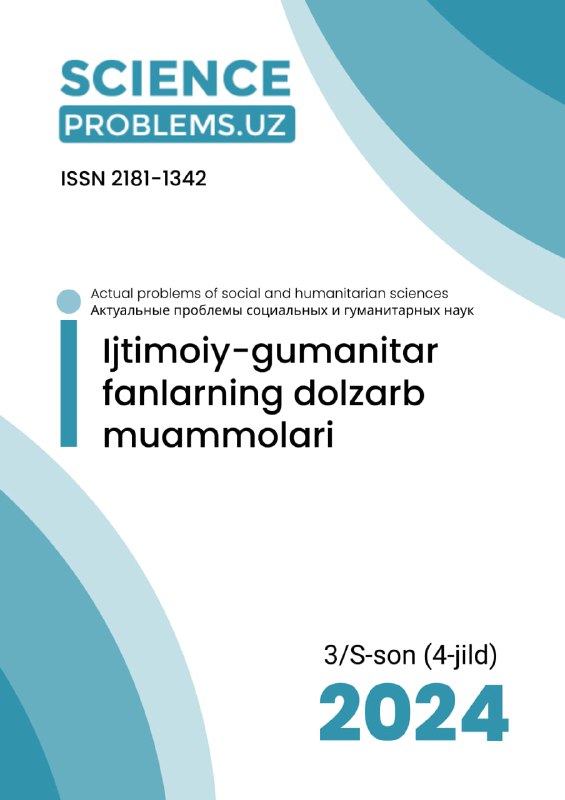BLOKCHEYN KRIMINALISTIKASI: MARKAZSIZLASHTIRISH DAVRIDA KIBER JINOYATLARNI TERGOV QILISHDA ZAMONAVIY YONDASHUV
Kalit so'zlar
https://doi.org/10.47390/SPR1342V4SI3Y2024N49Kalit so'zlar
blokcheyn kriminalistikasi, kiberjinoyat, kriptovalyuta, sud-tibbiyot ekspertizasi, markazlashmagan texnologiyalar, blokcheyn tahlili, raqamli dalillar, huquqiy muammolar, tergov usullari.Annotasiya
Ushbu tadqiqot blokcheyn kriminalistikasi va uning kiberjinoyatlarni tergov qilishdagi rolini oʼrganadi. Blokcheyn texnologiyasining markazlashmagan xususiyatlari, uning sud-tibbiyot ekspertizalari va jinoyatlarga qarshi kurashdagi afzalliklari va cheklovlari muhokama qilinadi. Tadqiqot blokcheyn kriminalistikasining zamonaviy yondashuvlari, mavjud vositalari va usullarini baholaydi, hamda huquqiy va meʼyoriy jihatlarini tahlil qiladi. Natijada, blokcheyn kriminalistikasining istiqbolli tadqiqot yoʼnalishlari va samarali qoʼllash uchun tavsiyalar taklif qilinadi.
Manbalar
Hashizume, K., Rosado, D. G., Fernández-Medina, E., & Fernandez, E. B. (2021). An analysis of security issues for the blokcheyn in the context of cybersecurity. IEEE Transactions on Engineering Management, 68(6), 1506-1515. https://doi.org/10.1109/TEM.2020.2987599
Kshetri, N., & Voas, J. (2018). Blokcheyn in developing countries. IT Professional, 20(2), 11-14. https://doi.org/10.1109/MITP.2018.021921645
Dai, H. N., Wong, R. C., Xu, G., Wang, X., & Lin, Z. (2019). Blokcheyn data analytics: A comprehensive survey. IEEE Access, 7, 145701-145729. https://doi.org/10.1109/ACCESS.2019.2945047
Möser, M., Böhme, R., & Breuker, D. (2018). An inquiry into money laundering tools in the Bitcoin ecosystem. In 2013 APWG eCrime Researchers Summit (pp. 1-14). IEEE. https://doi.org/10.1109/eCRS.2013.6805780
Irwin, A. S. M., & Dawson, G. (2021). Following the crypto money trail: Challenges and obstacles. Journal of Money Laundering Control, 24(4), 680-693. https://doi.org/10.1108/JMLC-04-2021-0037
Viswanathan, V., Sundaralingam, K., & Kaur, K. (2020). A survey on blokcheyn based digital forensic techniques. International Journal of Advanced Research in Engineering and Technology, 11(3), 368-380. https://doi.org/10.34218/IJARET.11.3.2020.036
Rangan, V., Lee, K., Arshad, A., & Al-Moayed, R. (2020). Blokcheyn forensics: Challenges, techniques and future directions. In 2020 IEEE International Conference on Blokcheyn and Cryptocurrency (ICBC) (pp. 1-5). IEEE. https://doi.org/10.1109/ICBC48266.2020.9169495
Zheng, H., Chen, D., Huang, L., Zhang, X., & Bai, X. (2018). Blokcheyn data analytics: A comprehensive review. IEEE Access, 6, 57563-57584. https://doi.org/10.1109/ACCESS.2018.2873578
Goldfeder, S., Kalodner, H., Reisman, D., & Narayanan, A. (2018). When the cookie meets the blokcheyn: Privacy risks of web payments via cryptocurrencies. Proceedings on Privacy Enhancing Technologies, 2018(4), 179-199. https://doi.org/10.1515/popets-2018-0038
Sayeed, S., Marco-Gisbert, H., & Caira, T. (2020). Blokcheyn security and privacy: A comprehensive guide. Springer.
Kshetri, N. (2017). Blokcheyn's roles in strengthening cybersecurity and protecting privacy. Telecommunications Policy, 41(10), 1027-1038. https://doi.org/10.1016/j.telpol.2017.09.003
Harlev, M. A., Yin, H., Langenheldt, K. C., Mukkamala, R., & Vatrapu, R. (2018). Breaking Tor's anonymity: The Skypemate machine identifier and machine fingerprinting. In Proceedings of the 51st Hawaii International Conference on System Sciences (pp. 5065-5074). https://doi.org/10.24251/HICSS.2018.635
Moher, D., Liberati, A., Tetzlaff, J., Altman, D. G., & The PRISMA Group. (2009). Preferred reporting items for systematic reviews and meta-analyses: The PRISMA statement. PLoS Medicine, 6(7), e1000097. https://doi.org/10.1371/journal.pmed.1000097
Abdikhakimov, I. (2024). The Interplay of Quantum Computing, Blockchain Systems, and Privacy Laws: Challenges and Opportunities. Tashkent State University of Law.
Gulyamov, S. (2024). Intelligent waste management using IoT, blockchain technology and data analytics. Tashkent State University of Law.
Ernazarov, A. E. (2023). BLOKCHEYN TEXNOLOGIYALARI VA UNING QO'LLANILISH SOHALARI








